Filter by

Cultural expertise, law, and rights: a comprehensive guide
Cultural Expertise, Law and Rights introduces readers to the theory and practice of cultural expertise in the resolution of conflicts and the claim of rights in diverse societies. Combining theory and case-studies of the use of cultural expertise in real situations, and in a great variety of fields, this is the first book to offer a comprehensive examination of the field of cultural expertise: …
- Edition
- 1
- ISBN/ISSN
- 9781003167075
- Collation
- xiv, 360 pages; illustration
- Series Title
- -
- Call Number
- 340.115 HOL c

The Roots of Latino Urban Agency
The 2010 U.S. Census data showed that over the last decade the Latino population grew from 35.3 million to 50.5 million, accounting for more than half of the nation's population growth. This book collects essays that examine this phenomenal growth. In order to understand the Latino community in all its diversity, the analysis has to begin at the grassroots level. The political future of the Lat…
- Edition
- -
- ISBN/ISSN
- 9781574415421
- Collation
- vii, 149 p
- Series Title
- Al Filo, Mexican American Studies Series
- Call Number
- 320.50868073 ROS t

Co-production and co-creation : engaging citizens in public services
Co-production and co-creation occur when citizens participate actively in delivering and designing the services they receive. It has come increasingly onto the agenda of policymakers, as interest in citizen participation has more generally soared. Expectations are high and it is regarded as a possible solution to the public sector’s decreased legitimacy and dwindling resources, by accessing m…
- Edition
- -
- ISBN/ISSN
- 9781315204956
- Collation
- xiv + 308 p
- Series Title
- -
- Call Number
- 352.65 COP c
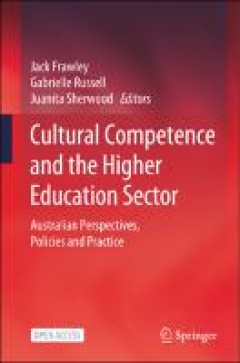
Cultural competence and the higher education sector
This open access book explores cultural competence in the higher education sector from multi-disciplinary and inter-disciplinary perspectives. It addresses cultural competence in terms of leadership and the role of the higher education sector in cultural competence policy and practice. Drawing on lessons learned, current research and emerging evidence, the book examines various innovative appro…
- Edition
- -
- ISBN/ISSN
- 9789811553622
- Collation
- xvii; 363 pg; ill.
- Series Title
- -
- Call Number
- 303.482 CUL
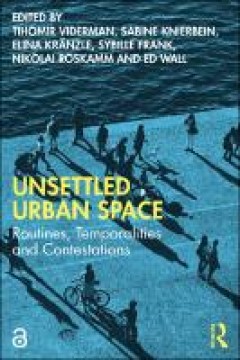
Unsettled urban space : routines, temporalities and contestations
While urban life can be characterized by endeavors to settle stable and safe environments, for many people, urban space is rarely stable or safe; it is uncertain, troubled, imbued with challenges and perpetually under pressure. As the concept of unsettled appears to define the contemporary urban experience, this multidisciplinary book investigates the conflicts and possibilities of settling and…
- Edition
- 3
- ISBN/ISSN
- 9780367258610
- Collation
- xix, 313p.
- Series Title
- -
- Call Number
- 307.1216 UNS v
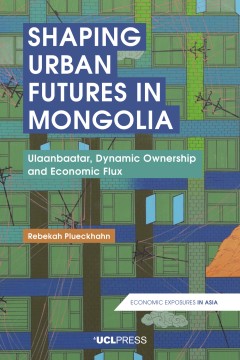
Shaping urban futures in Mongolia : Ulaanbaatar, dynamic ownership and econom…
What can the generative processes of dynamic ownership reveal about how the urban is experienced, understood and made in Ulaanbaatar, Mongolia? Shaping Urban Futures in Mongolia provides an ethnography of actions, strategies and techniques that form part of how residents precede and underwrite the owning of real estate property – including apartments and land – in a rapidly changing city. I…
- Edition
- -
- ISBN/ISSN
- 9781787351523
- Collation
- xv, 167 p. ill;
- Series Title
- -
- Call Number
- 307.7609517 SHA R
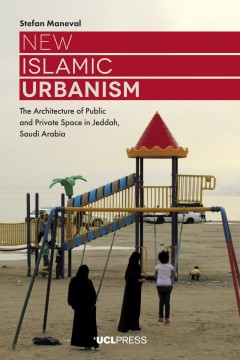
New Islamic urbanism : the architecture of public and private space in Jeddah…
Since the dawn of the oil era, cities in Saudi Arabia have witnessed rapid growth and profound societal changes. As a response to foreign architectural solutions and the increasing popularity of Western lifestyles, a distinct style of architecture and urban planning has emerged. Characterised by an emphasis on privacy, expressed through high enclosures, gates, blinds, and tinted windows, ‘New…
- Edition
- -
- ISBN/ISSN
- 9781787356429
- Collation
- xvii, 239 p. ill;
- Series Title
- -
- Call Number
- 720.9538 NEW S

The politics and poetics of authenticity : a cultural genealogy of Sinhala na…
What is the role of cultural authenticity in the making of nations? Much scholarly and popular commentary on nationalism dismisses authenticity as a romantic fantasy or, worse, a deliberately constructed mythology used for political manipulation. The Politics and Poetics of Authenticity places authenticity at the heart of Sinhala nationalism in late nineteenth and twentieth-century Sri Lanka. I…
- Edition
- -
- ISBN/ISSN
- 9781787351288
- Collation
- xi, 161 p. ill;
- Series Title
- -
- Call Number
- 305.8914805493 POL H
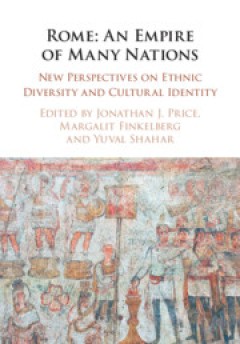
Rome: An Empire of Many Nations New Perspectives on Ethnic Diversity and Cul…
The center of gravity in Roman studies has shifted far from the upper echelons of government and administration in Rome or the Emperor's court to the provinces and the individual. The multi-disciplinary studies presented in this volume reflect the turn in Roman history to the identities of ethnic groups and even single individuals who lived in Rome's vast multinational empire. The purpose is le…
- Edition
- -
- ISBN/ISSN
- 9781009256193
- Collation
- xii, 428 p ; ill
- Series Title
- -
- Call Number
- 937.06 ROM J
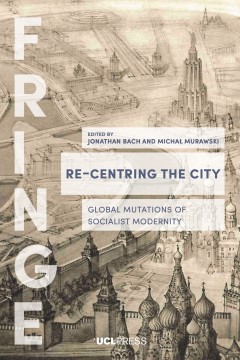
Re-centring the city : global mutations of socialist modernity
What is the role of monumentality, verticality and centrality in the twenty-first century? Are palaces, skyscrapers and grand urban ensembles obsolete relics of twentieth-century modernity, inexorably giving way to a more humble and sustainable de-centred urban age? Or do the aesthetics and politics of pomp and grandiosity rather linger and even prosper in the cities of today and tomorrow? R…
- Edition
- -
- ISBN/ISSN
- 9781787354111
- Collation
- xix, 292 p. ill;
- Series Title
- -
- Call Number
- 307.116 REC J
 Computer Science, Information & General Works
Computer Science, Information & General Works  Philosophy & Psychology
Philosophy & Psychology  Religion
Religion  Social Sciences
Social Sciences  Language
Language  Pure Science
Pure Science  Applied Sciences
Applied Sciences  Art & Recreation
Art & Recreation  Literature
Literature  History & Geography
History & Geography